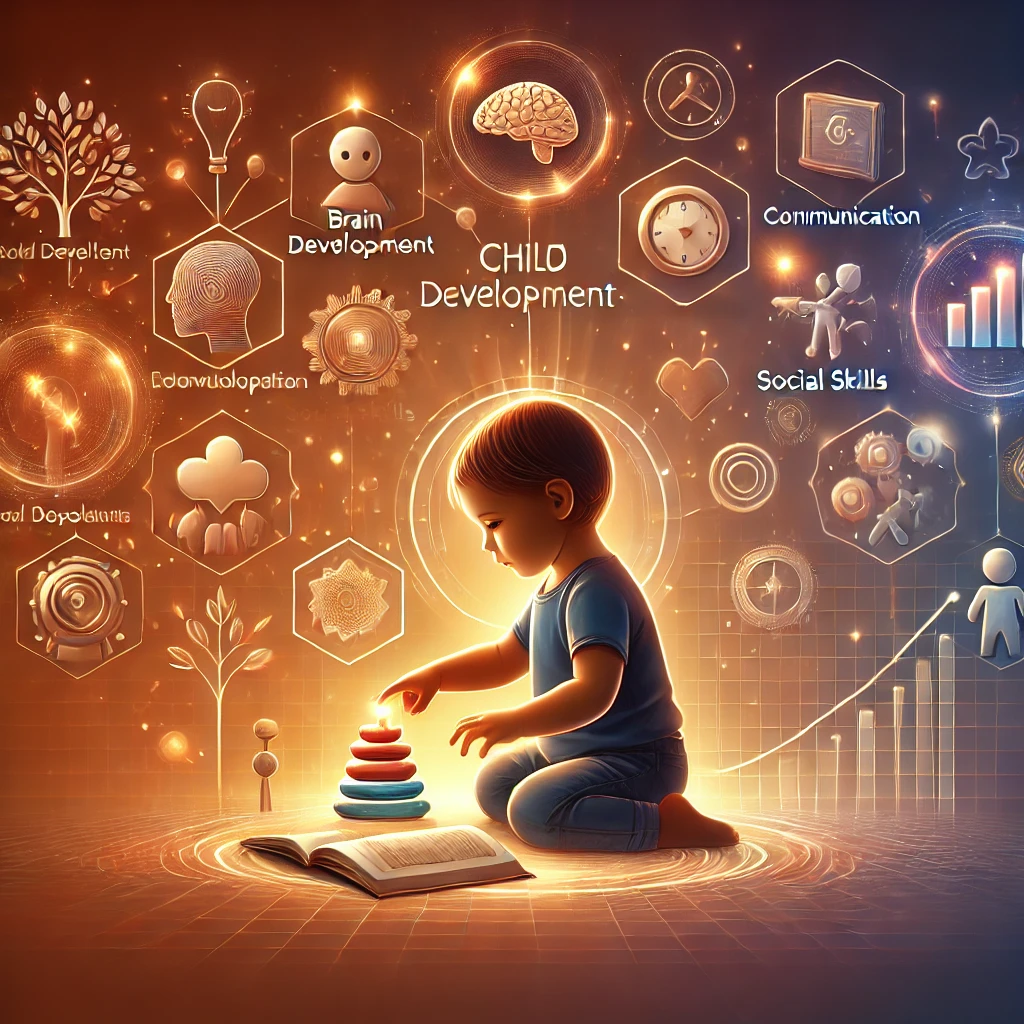
Unlocking the Secrets of Child Development: Expert Tips
Discover the best parenting advice, child development tips, and educational tools to help your child grow and thrive.
Introduction
Raising children is like solving a complex puzzle—each piece represents a new challenge, a milestone, or a breakthrough. As parents, we constantly seek the best ways to support our kids’ growth, from choosing educational toys to managing screen time. So, how do we navigate this journey with confidence? Let's dive into expert tips for unlocking the secrets of child development.
Understanding Child Development
Why Child Development Matters
Child development is the foundation of lifelong learning, behavior, and health. Every experience, from the first giggle to the first step, shapes their future. Understanding how children grow physically, emotionally, and cognitively helps us provide the right support at the right time.
Key Stages of Child Development
Every child develops at their own pace, but certain milestones guide us:
- Infancy (0-2 years): Rapid brain development, sensory exploration, and attachment building.
- Toddlerhood (2-4 years): Language explosion, motor skill enhancement, and social awareness.
- Early Childhood (4-6 years): Increased independence, emotional regulation, and curiosity-driven learning.
- Middle Childhood (6-12 years): Logical thinking, peer relationships, and academic growth.
- Adolescence (12+ years): Identity formation, emotional maturity, and critical thinking development.
Parenting Advice for Each Stage
Infants and Toddlers
Babies thrive on love, attention, and routine. Talk, sing, and read to them daily. Responsive parenting helps build secure attachments, setting the stage for future relationships.
Preschoolers
Encourage independence through structured choices. Let them dress themselves, pick bedtime stories, and engage in hands-on learning activities.
School-Age Kids
Support their education with interactive learning tools. Consider the best educational tools for kids in 2025, such as AI-powered learning apps and hands-on science kits.
Teenagers
Effective communication with teenagers is key. Instead of interrogating, engage in open-ended conversations to understand their thoughts and feelings.
The Role of Educational Toys in Child Development
Educational toys aren’t just fun—they’re essential tools for learning. Blocks enhance problem-solving skills, while puzzles boost spatial awareness. Choose age-appropriate toys that challenge and engage your child’s mind.
Balancing Work and Parenting
How to Maintain Work-Life Balance as a Parent
Juggling work and parenting feels like spinning plates. The key? Prioritize quality over quantity. Set dedicated family time, use productivity hacks, and establish boundaries between work and home life.
Encouraging Creativity in Children
Creativity fuels innovation. Provide open-ended play opportunities, like art supplies, building sets, and storytelling prompts. Limit rigid schedules to allow for spontaneous creative moments.
Managing Screen Time Effectively
Top Tips for Managing Screen Time
Technology is a double-edged sword. While screens offer educational content, excessive use can be harmful. Follow the 20-20-20 rule: every 20 minutes of screen time, take a 20-second break, and look 20 feet away. Also, create tech-free zones, like the dinner table.
Affordable Ways to Create Fun Learning Activities
Education doesn’t have to be expensive. DIY science experiments, storytelling nights, and scavenger hunts are fantastic budget-friendly learning activities.
Healthy Parenting Practices
Healthy parenting means nurturing your child while taking care of yourself. Prioritize self-care, practice patience, and embrace imperfection.
Overcoming Common Parenting Challenges
Top Parenting Challenges and How to Overcome Them
- Tantrums: Stay calm, acknowledge emotions, and redirect attention.
- Sibling Rivalry: Encourage teamwork, not competition.
- Homework Battles: Use the best apps for helping kids with homework to make learning engaging.
Creating a Positive Learning Environment at Home
Designate a quiet, clutter-free study space. Use encouraging language and celebrate small wins to boost confidence.
Conclusion
Parenting is a beautiful, ever-evolving journey. By understanding child development, leveraging educational tools, and fostering creativity, you can raise confident, happy children. Take it one day at a time, embrace the challenges, and cherish every moment.
Frequently Asked Questions (FAQs)
1. What are the best educational tools for kids in 2025?
AI-powered learning apps, interactive STEM kits, and virtual reality-based educational games are among the top choices.
2. How can I encourage creativity in my child?
Provide open-ended materials, encourage storytelling, and allow unstructured playtime to let their imagination flourish.
3. What are some practical ways to maintain work-life balance as a parent?
Set work boundaries, create a family schedule, and use productivity apps to maximize efficiency.
4. How do I manage my child's screen time without resistance?
Set clear rules, offer engaging offline activities, and use parental controls to ensure balanced usage.
5. What are the top parenting challenges and how can I overcome them?
Common challenges include tantrums, sibling rivalry, and homework struggles. Patience, communication, and the right tools can make a difference.